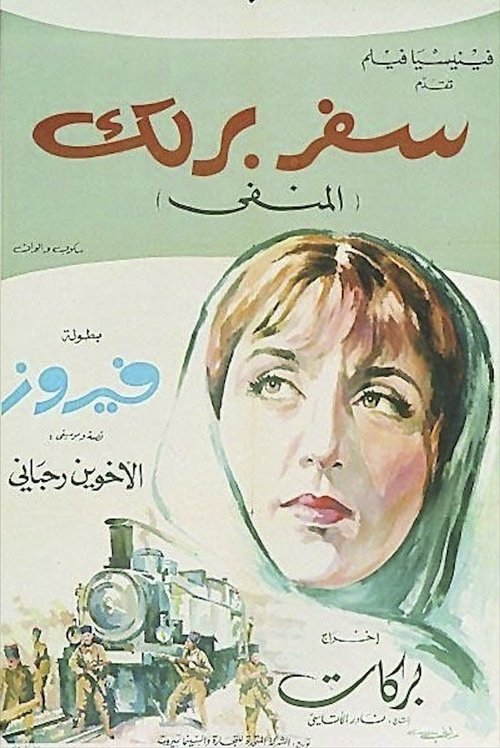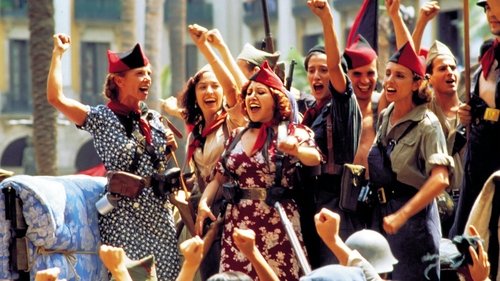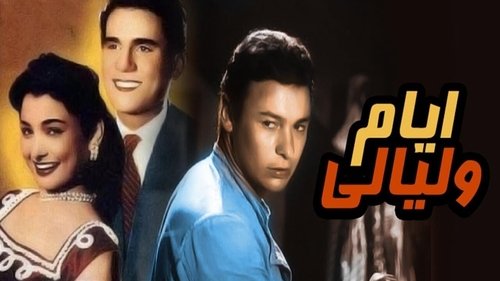Informações
Sinopse:
Duração: 01h55m
Data de lançamento: 01 de janeiro de 1967
Genêros: Drama, Música.
(6 votos)
?
?

Sinopse:
Duração: 01h55m
Data de lançamento: 01 de janeiro de 1967
Genêros: Drama, Música.

In a peaceful village, the mayor, seeing that the population is bored with tranquility, invents the mystical figure of Rajeh, and tells stories to villagers about the exploits of Rajeh, who kills and maims and steals. One day the mayor tells the villagers that Rajeh is heading to the village itself and they better be careful. Two smart men notice that the mayor was lying and that it is all his imagination. So they go on making good on the fictitious person and steal money and assault the mayor in the dark saying that they were Rajeh. Eventually, an old man with the name of Rajeh arrives in the village, amid public fears. Then it became obvious that Rajeh was merely a seller of rings for weddings and he wanted to marry his son to Rima, the mayor's niece. The two bad guys willingly go to jail for making use of the mayor's joke.

At the outbreak of the Spanish Civil War, the nun Maria is forced to flee her convent. She takes refuge in a brothel, until it is liberated by a woman's anarchist group. Maria joins the group and eventually goes to the front. The women's group faces the problems of fighting not only the nationalists, but also factions on the left seeking to impose a more traditional military structure.

A documentary film about Syria with its diverse civilizations and history. Where the hero of the film gets lost between his questions about history, culture, and identity, and his attempts to see the story of Syrian history. In the film, the narrator takes us on a journey through Syrian history that diversifies into five basic civilizational shifts, from the agricultural revolution to writing and the emergence of cities to trade until the advent of Christianity and up to the cultural achievement of Islamic civilization.

Robert Lachmann was a German-Jewish ethnomusicologist. In the 1930s, his radio show "Oriental Music" explored the musical traditions of Palestine and included regular live performances by musicians from different ethnic and religious groups. Inspired by Lachmann’s musicological studies, Palestinian artist Jumana Manna travels through Israel and the Palestinian territories of today with recordings from the programme. What do these songs sound like now when performed by Moroccan, Kurdish, or Yemenite Jews, by Samaritans, members of the urban and rural Palestinian communities, Bedouins and Coptic Christians?

Quando as crianças do bairro começam a desaparecer, Jenny suspeita que seu marido psicólogo infantil, Carter, pode estar retomando os experimentos desordenados que seu pai realizou em Carter quando ele era jovem. Agora, cabe a Jenny desvendar o mistério. E à medida que mais crianças desaparecem, ela teme pela segurança de seu próprio filho.

An athletic young man falls for a beautiful woman with a troubled brother. Handsome Yehia (Hafez) may come from a troubled background, but he's always strived to make the best of his life. When Yehia falls for the beautiful Samia (Iman), he believes he has finally found the woman with whom he could spend the rest of his life. Trouble soon arises, however, when Samia's delinquent stepbrother begins doing everything in his power to sabotage the couple's relationship.

María José and Alfredo are about to celebrate their 20th anniversary and their children give them a trip to the hotel where they celebrated their honeymoon, but a spell will make them repeat the same day.

Emilia chega a uma cidade religiosa na fronteira entre Argentina e Brasil em busca do irmão desaparecido. Ela se hospeda na casa de sua estranha tia Inés, próxima a floresta onde uma perigosa besta apareceu uma semana antes. Entre realidade e mitologia, Emilia terá de confrontar seu passado.